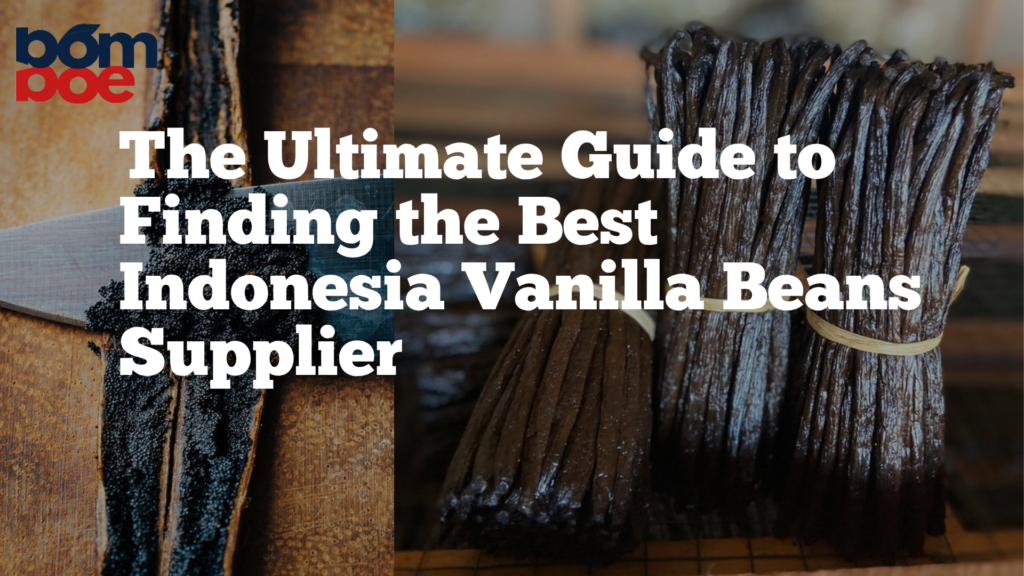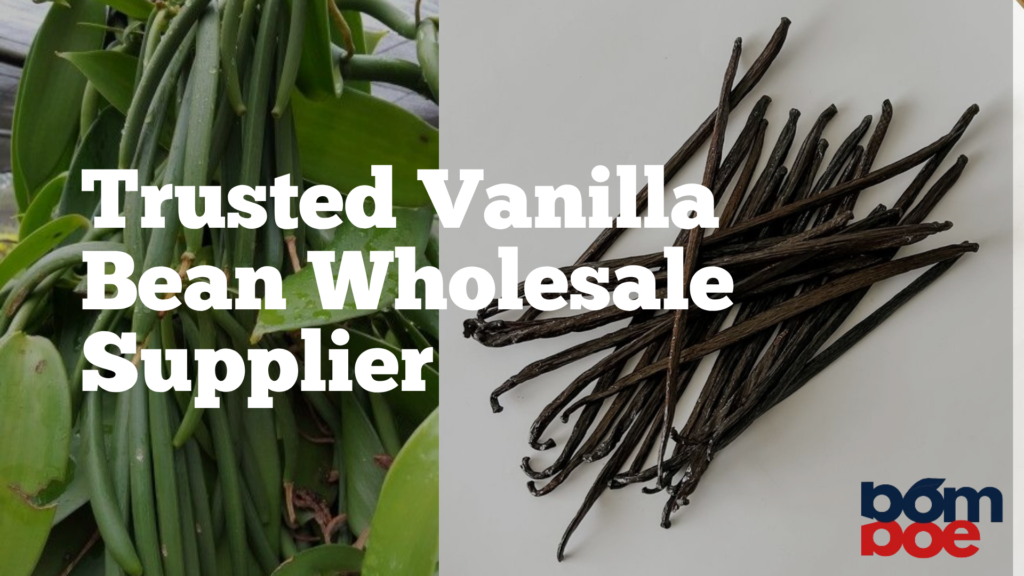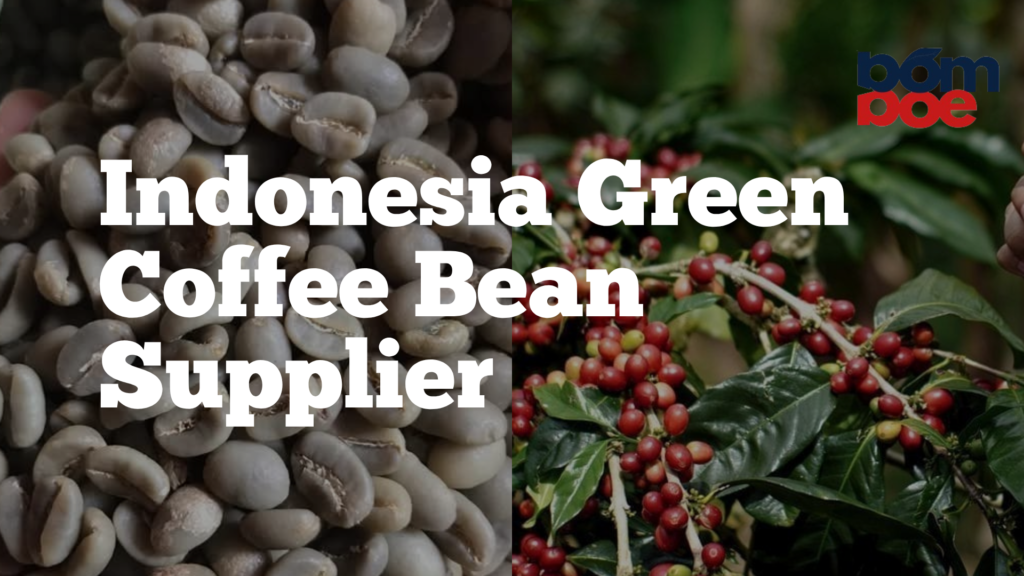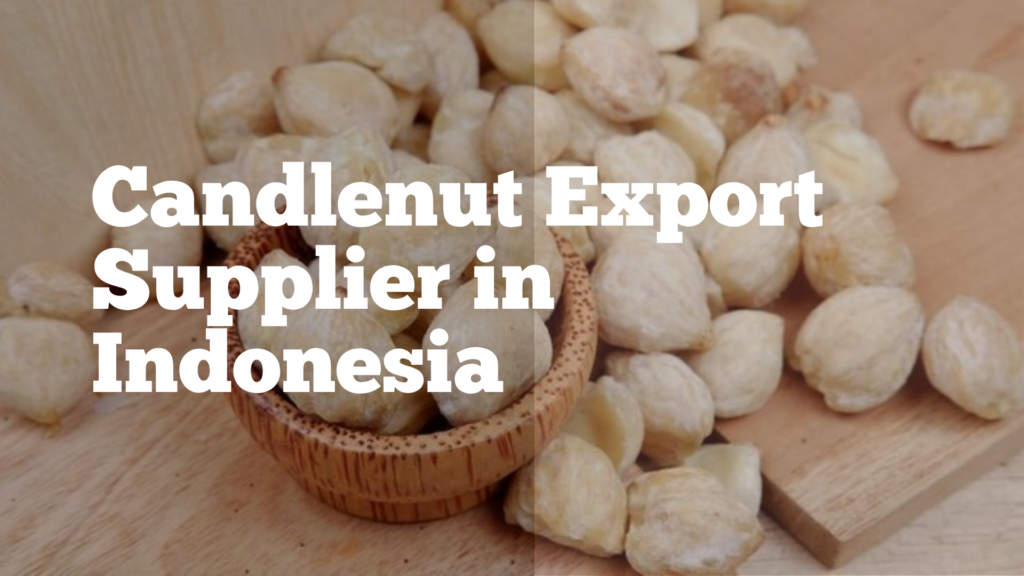Indonesia Arabica Coffee Exporter: PT Bomboe Desa Indonesia
Indonesia is renowned as one of the world’s largest coffee producers, with Arabica coffee as one of its top export commodities. Known for its unique flavor, aroma, and premium quality, Indonesian Arabica coffee is highly sought after in the global market. PT Bomboe Desa Indonesia, also known as Bomboe, is a trusted exporter of Indonesian Arabica coffee. This company is committed not only to exporting coffee but also to empowering local farmers and ensuring the highest product quality.

About PT Bomboe Desa Indonesia
PT Bomboe Desa Indonesia is an exporter of premium Arabica coffee that collaborates directly with local farmers. With a focus on sustainability, quality, and fair trade practices, the company promotes the finest Indonesian agricultural products to the global market.
1. Company Overview
PT Bomboe Desa Indonesia was founded with the vision of connecting Indonesia’s finest agricultural products to the global market. The mission of the company encompasses:
- Empowering local farmers: Ensuring fair prices and better livelihoods.
- Commitment to sustainability: Implementing eco-friendly practices throughout the production process.
2. Commitment to Quality
Bomboe ensures that every bean is carefully processed, from planting to post-harvest, to maintain the premium quality of its Arabica coffee. This commitment is what makes Bomboe a standout exporter in the competitive global coffee market.
The Excellence of Indonesian Arabica Coffee
Indonesia’s geographic and climatic advantages make it an ideal country for producing premium Arabica coffee. Arabica coffee from Indonesia offers distinctive characteristics that set it apart from other countries’ Arabica.
1. Unique Geographical Features
Indonesia has high-altitude regions perfect for Arabica coffee farming. The volcanic soil and tropical climate provide ideal conditions for growing coffee with complex flavors2. .
2. Soil and Climate Factors
- Volcanic soil: Rich in minerals, contributing to unique flavor profiles.
- Tropical climate: Creates a perfect environment for Arabica coffee plants.
- High-altitude regions: Enhance the coffee’s acidity and complexity.
Types of Premium Arabica Coffee from Indonesia
PT Bomboe Desa Indonesia specializes in exporting several types of Arabica coffee, each with unique characteristics based on its origin:
- Karo Arabica: A rich and complex flavor profile with floral and fruity notes, grown in North Sumatra’s highlands.
- Gayo Arabica: Known for its chocolate and herbal flavors with a low acidity, cultivated in Aceh.
- Bali Kintamani Arabica: Offers a citrusy aroma with a balanced acidity, grown in Bali’s volcanic highlands.
Sustainable Production Process
To ensure premium quality, PT Bomboe Desa Indonesia implements sustainable farming and production practices.
1. Traditional Planting Techniques
Farmers use organic and traditional farming methods, avoiding harmful chemicals to protect the environment and ensure a healthy crop.
2. Strict Post-Harvest Processes
The post-harvest process involves wet processing, which is known to enhance the coffee’s clean and bright flavors. After washing, the beans are sun-dried to maintain optimal moisture content, ensuring quality preservation.
Image: A local farmer carefully handpicking ripe Arabica coffee cherries.
The Role of Local Farmers in Coffee Exports
PT Bomboe Desa Indonesia firmly believes in the importance of collaboration with local farmers to maintain the success of its export business.
1. Community-Based Collaboration
The company partners with farming communities to ensure fair trade and fair pricing for their harvests. This collaboration supports local livelihoods and creates a sustainable coffee ecosystem.
2. Bomboe’s Support for Farmers
Bomboe provides technical training to farmers on modern farming techniques and offers facilities for post-harvest processing, such as depulping machines and drying platforms.
Global Market for Indonesian Arabica Coffee
Indonesian Arabica coffee continues to attract attention in the global market, with demand increasing yearly.
Top Export Destinations
- United States: A major consumer of specialty coffee.
- Japan: Known for its appreciation of high-quality coffee.
- Western Europe: Countries like Germany and the Netherlands are key markets.
Market Trends and Demand
The rising trend of specialty coffee consumption among millennials and Gen Z has created a growing market for premium Arabica coffee.
Market Trend and demand global for arabika coffee
Green Arabica Coffee: A Top Export Product
PT Bomboe Desa Indonesia also specializes in exporting Green Coffee Beans (unroasted coffee), which are highly valued in the global market.
Benefits of Green Coffee for the Global Market
- Popular for its health benefits, including aiding weight loss.
- Used as a raw material for specialty coffee roasting overseas.
Characteristics of Indonesian Green Arabica
The Green Arabica exported by Bomboe features meticulously controlled moisture content and a grading process to ensure uniformity and quality.
Marketing Indonesian Arabica Coffee in the Digital Era
PT Bomboe Desa Indonesia leverages digital platforms to market its Arabica coffee globally.
Bomboe’s Branding Strategy
The company emphasizes the unique origin stories of its coffee and its commitment to empowering local farmers, creating a compelling brand identity.
Expanding Reach Through E-Commerce
Bomboe sells its products through international marketplaces, ensuring that its coffee reaches global consumers directly.
Benefits of Coffee Exports for Indonesia
The Arabica coffee industry significantly contributes to Indonesia’s economy and society.
- Boosts local economies: Provides jobs and improves the livelihoods of farmers and communities.
- Promotes coffee tourism: Enhances the appeal of coffee-producing regions as tourist destinations.
PT Bomboe Desa Indonesia’s Future Commitment
PT Bomboe Desa Indonesia aims to expand its global presence and continue supporting local farmers. The company envisions becoming a leading exporter of Indonesian Arabica coffee while promoting sustainable practices and fair trade principles.




qFMcBj wfY ysJNAc
Hello,
I hope this message finds you well.
We are interested in purchasing Arabica coffee directly from you with the intention of re-exporting to other markets. We would appreciate the opportunity to review your product catalog to better understand the varieties and specifications you offer.
Additionally, we would like to know if it is possible to obtain a 20 kg sample batch as part of our evaluation process.
Please let us know about availability, packaging options, and shipping terms.
Thank you
Hello,
Can you send me email or chat us from Whatsapp?
thc gummies bulk shipping worldwide with low rates